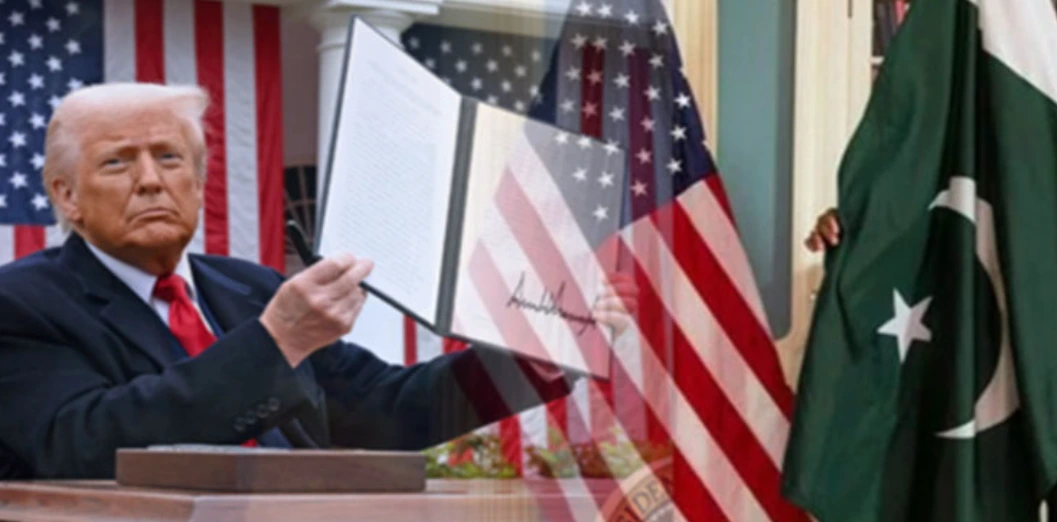
Pakistan Responds to U.S. Tariff Hike: High-Level Strategy Formed Amid Concerns for Textile Sector and Trade with Dubai
ISLAMABAD – In a significant development affecting international trade, the Government of Pakistan has announced the formation of a high-level strategy to counter the recent 29% tariff imposed by the United States on Pakistani products. The move, approved by U.S. President Donald Trump, poses a serious challenge to Pakistan’s key export sectors, particularly textiles, which are also heavily traded through hubs like Dubai.
According to ARY News, Prime Minister Shehbaz Sharif has constituted a 12-member steering committee and a 19-member working group to engage in negotiations with U.S. officials and develop a long-term response to the escalating trade issue.
Dubai’s Role in Regional Trade Could Help Soften the Blow
With Dubai serving as a vital trade and logistics center for Pakistani exports, industry leaders believe that strategic use of UAE trade routes and re-export strategies through Dubai Free Zones could help mitigate some of the economic pressure caused by the American tariff hike.
Pakistan’s exporters, especially in textiles and garments, rely heavily on Dubai-based buyers, distributors, and warehouses for regional and international shipments, making the city an essential part of any counter-strategy.
Key Figures Leading Pakistan’s Response
-
Finance Minister Muhammad Aurangzeb will lead the steering committee, which will oversee all strategic responses and diplomatic engagement.
-
Commerce Secretary Jawad Paul has been appointed head of the working group, which includes officials from trade, commerce, and finance departments, along with prominent business leaders.
The working group has been tasked with conducting technical assessments, facilitating dialogue with the U.S., and leveraging Pakistan’s economic ties with Dubai and the Gulf region to maintain trade flow and seek potential support.
Why the U.S. Imposed Tariffs on Pakistan
The 29% tariff imposed by the United States is part of a broader reciprocal tariff strategy initiated by President Trump. The administration cited Pakistan’s existing duties on U.S. imports as the reason for the retaliatory measures.
This development comes as part of a sweeping executive order that includes a 10% baseline tariff on imports from multiple countries and higher rates on what the U.S. considers “unfair trade partners.”
The move is expected to significantly impact Pakistan’s export earnings, many of which rely on the U.S. market and re-export gateways like Dubai, which processes a large volume of Pakistani goods headed to North America and Europe.
Concerns for Pakistan’s Economy and Global Trade Stability
The announcement has already sent shockwaves through global markets, with fears that the tariffs could lead to inflation, strained diplomatic ties, and an overall downturn in international trade.
In a statement to the media, senior Pakistani officials expressed concern about the long-term effects of the tariff escalation, particularly on Pakistan’s textile exports, which make up a major portion of the country’s foreign exchange revenue and are heavily connected to Dubai’s re-export infrastructure.
Dubai’s Position as a Trade Buffer
Experts believe Dubai’s strategic role in global trade can act as a cushion for Pakistan’s exporters. With established logistics systems, tax-free zones, and a massive network of import-export companies, Dubai continues to be a crucial partner in maintaining Pakistan’s access to Western markets.
Many Pakistani businesses operating in Dubai’s Jebel Ali Free Zone and Dubai Airport Freezone (DAFZA) are already exploring alternate routes to navigate around new tariff pressures.
Final Thoughts: Pakistan’s Next Steps and Dubai’s Strategic Importance
As the United States ramps up trade protectionism, Pakistan is actively seeking solutions — and all eyes are on Dubai to play a key role in buffering the impact. The newly formed steering and working groups are expected to deliver actionable strategies in the coming weeks, focusing on diplomatic engagement, economic diversification, and enhancing regional trade links through partners in the UAE.
For now, businesses in Pakistan and Dubai remain cautiously optimistic that a resolution can be reached to safeguard mutual interests.






